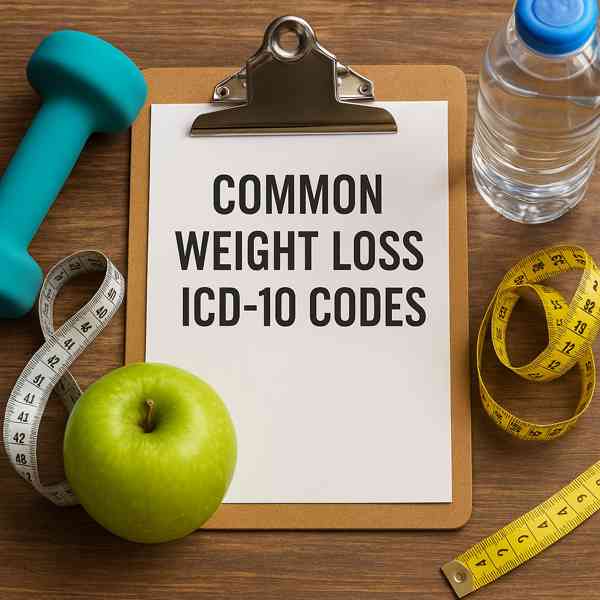
In the world of healthcare, accurate coding is vital — especially when it comes to documenting weight loss.
In this article, we’ll break down what ICD-10 codes are used for weight loss, how to apply them, and what you should know for accurate recordkeeping.
ICD-10 Basics Explained
It’s a standardized system used worldwide for classifying medical conditions and diseases.
Each diagnosis is assigned a unique code, which is used for:
- Submitting claims to health providers
- Tracking public health trends
- Clinical documentation
ICD-10 Codes for Weight Loss
Weight loss can be intentional or unintentional — and each situation has a specific ICD-10 code.
Key codes include:
- Used when weight loss is unexplained or unintentional
This difficulty in losing weight code applies when a patient loses a significant amount of weight without trying, often due to illness.
- Used when weight loss is guided by professional support
Often applied in cases involving nutritional intervention or guidance.
- Indicates poor nutrition or unhealthy patterns impacting weight
- Used in contrast to weight loss when monitoring obesity treatment progress
- Applied in extreme undernutrition cases, often linked with weight loss
Documenting Unexplained Weight Loss Properly
R63.4 is the most commonly used ICD-10 code for weight loss, but it must be applied correctly.
- There is no intentional diet or fitness program involved
- A known condition doesn’t fully explain the weight change
- Additional testing is required to rule out causes
Avoiding Mistakes in Documentation
To avoid claim denials or coding errors:
- This determines whether R63.4 is appropriate
- Include context like depression, cancer, or malabsorption
- Use supplemental Z-codes for counseling or screenings
- Be sure they make sense in context
ICD-10 for Weight Management Programs
If you’re coding for a structured weight loss program or health coaching, consider using these Z-codes:
- Z71.3 – Dietary Counseling
- Can apply to coaching or fitness counseling
- Z13.21 – Encounter for Nutritional Screening
These codes can support insurance claims for wellness, prevention, and obesity treatment plans.
Use ICD-10 Effectively in Clinical Settings
Using the right ICD-10 code for weight loss is crucial for clear documentation and proper billing.
To summarize:
- Most common diagnosis for unknown causes
- Z-codes = Counseling, prevention, and health maintenance
- Use when weight loss is tied to illness
Always consult coding guidelines and payer policies when applying ICD-10 codes.